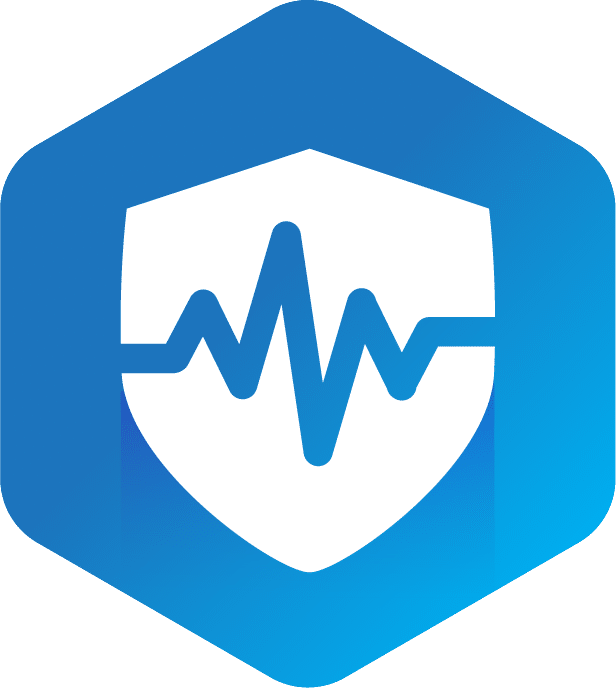HIPAA rules guarantee patients have the right to access their Protected Health Information (PHI) efficiently and securely. The Privacy Rule mandates strict guidelines for handling, using, and disclosing PHI to protect patient confidentiality. The Information Blocking Rule further prevents unreasonable restrictions on electronic health data access. Compliance with these regulations involves maintaining accurate designated record sets and ensuring exclusions like psychotherapy notes remain protected. Secure patient portals are essential tools for enhancing accessibility while safeguarding privacy. Covered entities must implement user-friendly, compliant systems that meet federal mandates. Discover how these elements work together to enable health data access effectively.
The responsibility to guarantee access to Protected Health Information (PHI) under HIPAA is a fundamental provision that empowers individuals to request, inspect, obtain copies, and transmit their health data. Despite this, PHI access challenges persist, undermining patient empowerment.
Issues such as complex request procedures and delays can hinder timely access. However, technological solutions, including secure patient portals and electronic health records, streamline access and enhance data security.
Covered entities must make certain that these systems are robust, user-friendly, and compliant with HIPAA standards to protect sensitive information. By addressing these challenges and leveraging technology, the healthcare sector can facilitate seamless PHI access, thereby promoting patient autonomy and safeguarding health data integrity.
Ensuring the confidentiality and security of Protected Health Information (PHI), HIPAA’s Privacy Rule establishes thorough guidelines that covered entities must adhere to when handling sensitive patient data.
The privacy rule implications include stringent regulations on the use and disclosure of PHI to protect patient privacy. Covered entities must implement policies to safeguard PHI, particularly in the context of electronic record sharing.
This includes ensuring that only authorized individuals access PHI and that any data sharing complies with HIPAA standards. Additionally, covered entities must provide patients with access to their PHI while maintaining robust security measures.
These provisions aim to balance data accessibility with the imperative of maintaining patient confidentiality, fortifying trust in healthcare information systems.
Information Blocking rules, established under the 21st Century Cures Act, are designed to prevent practices that unreasonably hinder the access, exchange, or use of electronic health information (EHI).
These regulations are pivotal in enhancing patient advocacy by ensuring patients have thorough access to their health data. By promoting data transparency, these rules foster a healthcare environment where patients and providers can make more informed decisions based on exhaustive health information.
Compliance with these rules necessitates that healthcare entities eliminate barriers to EHI access, thereby aligning with federal mandates for data interoperability. By adhering to these guidelines, organizations not only comply with legal standards but also advance patient-centric care and trust in health data management.
Adherence to Information Blocking rules also necessitates a thorough understanding of what constitutes designated record sets within a healthcare organization.
Designated record sets encompass medical records, billing records, and other records utilized in decision-making about individuals. It is vital for healthcare entities to maintain accurate record retention policies to guarantee compliance.
These records must be readily accessible for data sharing, facilitating patient access to their Protected Health Information (PHI). Understanding and correctly identifying designated record sets ensures that all pertinent information is available for lawful access requests.
Certain categories of information, such as psychotherapy notes and data prepared for legal proceedings, are explicitly excluded from patient access under HIPAA regulations. These exclusions guarantee that sensitive content, pivotal for therapeutic efficacy or legal strategy, remains confidential.
Additionally, records generated for peer review and practitioner evaluations are also not accessible to patients. These documents, essential for maintaining professional standards and improving healthcare quality, are protected to preserve the integrity of internal assessments.
Compliance with these exclusions is vital for healthcare providers to avoid breaches of confidentiality and maintain adherence to HIPAA’s stringent privacy rules. Understanding these exclusions helps ensure that organizations manage protected health information (PHI) responsibly and legally.
Under HIPAA regulations, personal representatives are granted the same rights to access and transmit an individual’s protected health information (PHI) as the individual themselves. This provision guarantees that authorized representatives can effectively manage healthcare decisions for those they represent.
To comply, covered entities must undertake access verification processes to confirm the representative’s authority. Once verified, representatives can request data transmission of PHI, facilitating seamless information flow for treatment or other healthcare purposes.
It’s crucial that these processes are handled with stringent adherence to HIPAA’s privacy and security standards to prevent unauthorized access and ensure the integrity of the transmitted data. This ensures both compliance and the safeguarding of sensitive health information.
HIPAA training is crucial for guaranteeing that healthcare organizations and their employees comply with privacy regulations and effectively safeguard protected health information (PHI). The significance of training cannot be overstated, as it equips staff with the knowledge to handle PHI appropriately, reducing the risk of breaches.
Regulatory compliance requires that all employees, from administrative personnel to healthcare providers, are well-versed in HIPAA rules. Regular training sessions ensure that employees stay updated on any changes in legislation and understand their roles in maintaining patient confidentiality.
Compliance-focused training programs are critical for fostering a culture of vigilance and responsibility, ultimately protecting sensitive health data and upholding the integrity of healthcare services.
Managing the intersection of state laws and HIPAA compliance requires meticulous attention to both federal regulations and specific state mandates governing the access and protection of protected health information (PHI). State laws often provide more stringent protections or greater rights of access to PHI than HIPAA. Compliance requirements necessitate that covered entities navigate these dual regulatory landscapes effectively.
For instance, while HIPAA sets the baseline for PHI access, state-specific regulations may impose additional obligations. Entities must guarantee that their policies are robust enough to meet both federal and state standards. This dual compliance approach mitigates legal risks and enhances the protection and accessibility of health data, ensuring that all regulatory requirements are thoroughly addressed.
The confluence of HIPAA’s Privacy Rule and the Information Blocking rule establishes a rigorous framework for accessing and managing PHI. By meticulously abiding by these regulations, covered entities guarantee the protection and rightful accessibility of health data.
The inclusion of designated record sets and the exclusion of sensitive information underscore the precision of these guidelines. With the critical role of personal representatives and the necessity for thorough HIPAA training, one question remains: is compliance robust enough to safeguard the evolving landscape of health information?

